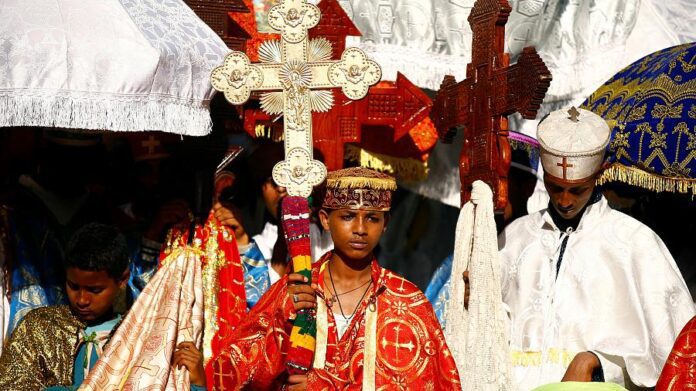Timkat is one of the most important festivals on the Ethiopian calendar, it is a special Jesus baptism festival. Timkat is an Orthodox Christian celebration commemorating Jesus Christ’s baptism in the River Jordan.
Ethiopians also celebrate Christmas in January, which they call Ledet or Genna. While the rest of the world celebrates Christmas on December 25, Ethiopians and other Coptic Christians observe the holiday on January 7 due to a different calendar.
The Gregorian calendar celebrates Christmas on December 25, but Ethiopians continue to follow the ancient Julian calendar, which places Christmas on January 7. Similarly, while other Christians celebrate Epiphany; the commemoration of Jesus’ baptism in the Jordan River, the Ethiopians celebrate Epiphany(Timkat) on January 19th.
On the day before Timkat, each church wraps its tabot a replica of the Ark of the Covenant that houses the 10 Commandments according to tradition, in fabric and silk. The most senior priest from each church leads a procession to the river or bath, holding the tabots on their heads, clad in holy clothes and carrying crucifixes and umbrellas.
SEE: The Ghana golden stool from heaven
Musicians playing traditional trumpets, or imbilta may lead the way. Traditional praise hymns are often chanted and clapped along by spiritual singers. During the night, the priests and other worshipers vigil over the tabots.
The biggest celebrations take place the next day. The celebration begins with a mass in the early hours of the morning until approximately 7 a.m. People typically dress in white and wear scarves to cover their heads. Worshippers then immerse themselves in the water, repeating their baptismal vows. This major feature of the celebration is a recreation of Jesus’ baptism in the River Jordan.
People eat Injera, commonly known as flatbread, after the reenactment of Jesus’ baptism. Timkat also includes Doro Wat, an Ethiopian spicy chicken dish.
On the third day of Timkat, the tabots are returned to the churches in a similar procession to the previous day. This exercise concludes the festivities.

